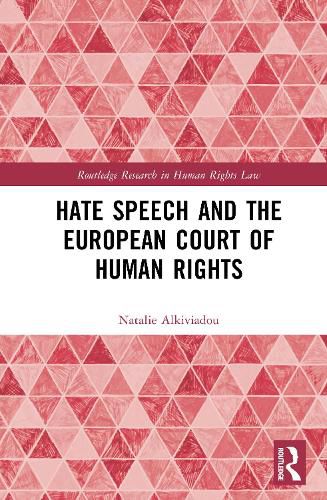Readings Newsletter
Become a Readings Member to make your shopping experience even easier.
Sign in or sign up for free!
You’re not far away from qualifying for FREE standard shipping within Australia
You’ve qualified for FREE standard shipping within Australia
The cart is loading…






This book argues that the European Court of Human Rights (ECtHR) should reconsider its approach to hate speech cases and develop a robust protection of freedom of expression as set out in the benchmark case of Handyside v. the United Kingdom. In that case, the ECtHR determined that Article 10 of the European Convention on Human Rights (ECHR), safeguarding the right to freedom of expression, extends protection not only to opinions which are well received but also to those deemed offensive, shocking, or disturbing. However, subsequent rulings by the Court have generated a significant amount of contradictory case law. Against this backdrop, this book provides an analysis of hate speech case-law before the ECtHR and the now obsolete European Commission on Human Rights. Through a jurisprudential analysis, it is argued that these institutions have adopted an overly restrictive approach to hate speech, which fails to provide adequate protection of the right to freedom of expression. It also demonstrates that there are stark inconsistencies when it comes to the treatment of some forms of 'hate speech' versus others. The study further contends that, in reaching its decisions on hate speech cases, the Court disregards empirical evidence on matters related to free speech restrictions. Viewing the ECHR as a 'living instrument' the book places this analysis within the current state of affairs vis-a-vis the handling of hate speech, particularly online, by European countries, the European Union itself and social media platforms, actions which the author argues are contributing to a free speech demise. The book will be a valuable resource for academics, researchers and policy-makers working in the area of Law, Political Science, European Studies and Sociology.
$9.00 standard shipping within Australia
FREE standard shipping within Australia for orders over $100.00
Express & International shipping calculated at checkout
This book argues that the European Court of Human Rights (ECtHR) should reconsider its approach to hate speech cases and develop a robust protection of freedom of expression as set out in the benchmark case of Handyside v. the United Kingdom. In that case, the ECtHR determined that Article 10 of the European Convention on Human Rights (ECHR), safeguarding the right to freedom of expression, extends protection not only to opinions which are well received but also to those deemed offensive, shocking, or disturbing. However, subsequent rulings by the Court have generated a significant amount of contradictory case law. Against this backdrop, this book provides an analysis of hate speech case-law before the ECtHR and the now obsolete European Commission on Human Rights. Through a jurisprudential analysis, it is argued that these institutions have adopted an overly restrictive approach to hate speech, which fails to provide adequate protection of the right to freedom of expression. It also demonstrates that there are stark inconsistencies when it comes to the treatment of some forms of 'hate speech' versus others. The study further contends that, in reaching its decisions on hate speech cases, the Court disregards empirical evidence on matters related to free speech restrictions. Viewing the ECHR as a 'living instrument' the book places this analysis within the current state of affairs vis-a-vis the handling of hate speech, particularly online, by European countries, the European Union itself and social media platforms, actions which the author argues are contributing to a free speech demise. The book will be a valuable resource for academics, researchers and policy-makers working in the area of Law, Political Science, European Studies and Sociology.